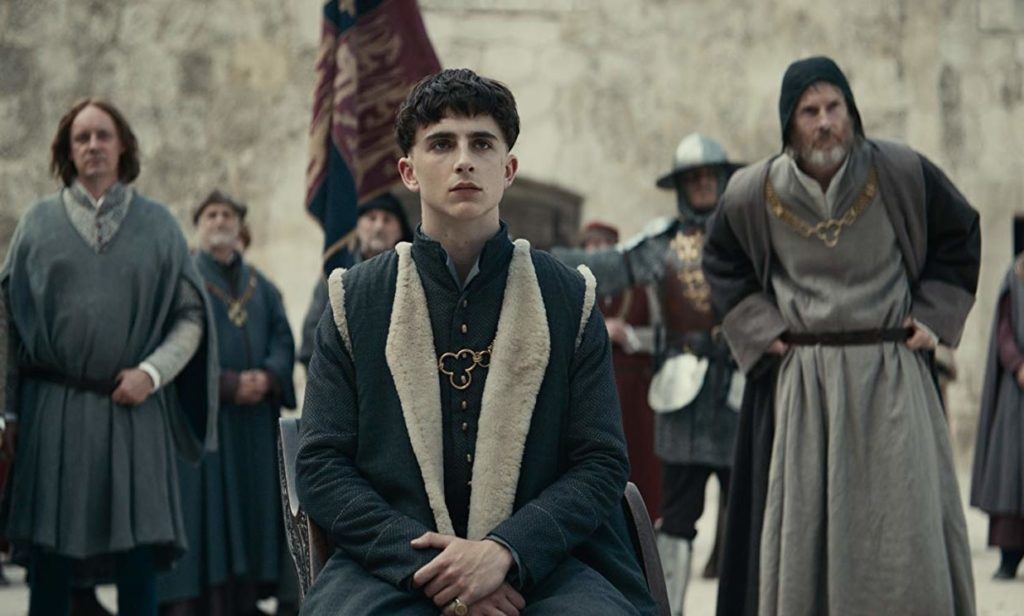The King

Timothee Chalamet stars in THE KING. (Photo: Netflix)
In the 15th century, Henry V was a brooding, insolent playboy who assumed the English throne, then became consumed with ego-driven power and vengeance. Sound familiar?
Indeed, an undercurrent of contemporary political parallels gives The King relevance, although this handsomely mounted biopic from Australian director David Michod (Animal Kingdom) is an overall muddled depiction of a critical period in European history.
As the film opens, Hal (Timothee Chalamet) has little interest in following in the tyrannical footsteps of his father, King Henry IV (Ben Mendelsohn), whose country has been fighting France off and on for several decades.
When his father dies and he inherits the throne while still in his 20s, Henry V develops a ruthless dictatorial style bordering on corrupt, driven by resentment over his legacy and lingering hostility toward his upbringing. “I am not my father,” he declares emphatically.
Nevertheless, the transition to power forces Henry to mature into a military warrior, seeking guidance from longtime confidant Falstaff (Joel Edgerton) as he confronts the unstable Dauphin of France (Robert Pattinson) prior to leading England’s army into the Battle of Agincourt. That conflict of archers and knights proved to be a turning point in the Hundred Years’ War.
In another showcase of his versatility, Chalamet (Call Me by My Name) balances strength and vulnerability during Hal’s rise to power. He’s not physically imposing but conveys a commanding presence.
The King is visually stunning, right from the opening shot on a battlefield overrun with carnage and bloodshed. The period re-creation is richly detailed, including authentic armor and weaponry. The visceral large-scale depictions of combat don’t shy away from the inherent brutality.
The well-researched screenplay by Michod and Edgerton is a character study at its core, following a generally predictable narrative arc while exploring some intriguing dynamics during its slow build to the obligatory final showdown in the rolling hills of northern France.
The film offers considerably more talk than action, including a handful of speeches to rally the troops. Its deliberately paced buildup is replete with philosophical debates about the nature of warfare, though lacking the dexterity and verbal flair that Shakespeare famously brought to the same material. For moviegoers, that battle isn’t worth fighting.
Rated R, 140 minutes.